Intel D975XBX: Intel brings their Bad-Axe to Market
by Gary Key on January 26, 2006 12:05 AM EST- Posted in
- Motherboards
Basic Features: Intel D975XBX
| Specification | Intel D975XBX |
| CPU Interface | LGA775-based Pentium 4, Pentium 4 XE, Celeron D, and Pentium D processors |
| Chipset | Intel 975X - MCH ICH7R - ICH |
| Pentium D Support | 820D, 830D, 840D, 840EE, 920D, 930D ,940D ,950D , 955EE |
| Front Side Bus | 1333 / 1067 / 800 / 533 MHz |
| Host Burn-In Mode | 0 - 30% (in 1 percent increments) |
| Memory Speeds | Default, DDR-2 333, 400, 533, 667, and 800MHz |
| PCI Bus Speeds | Default, 40.00MHz |
| PCI Express Bus Speeds | Default, 101.32, 102.64, 103.96, 105.28, 106.6, 107.92, 109.24MHz |
| Set Processor Multiplier | 12 to 40, (in 1 step increments) |
| Core Voltage | Default, 1.2750V to 1.6000V (in 0.0125V increments) |
| DRAM Voltage | Default, 1.80V, 1.90V, 2.00V, 2.10V, 2.20V |
| MCH Chipset Voltage | Default, 1.525V, 1.600V, 1.650V, 1.725V |
| FSB Termination Voltage | Default, 1.271V, 1.333V, 1.395V |
| Memory Slots | (4) x DIMM, max. 8GB, DDR2 667/533/400, non-ECC, ECC, un-buffered memory |
| Expansion Slots | (2) x PCI-E x16 (operates in 1x16 and 1x8 or 2x8 mode) (1) x PCI-E x16 (operates in x4 mode) (2) x PCI 2.3 |
| Onboard SATA | Intel ICH7R: (4) x SATA 3Gb/s |
| Onboard IDE | Intel ICH7R: (1) x UltraDMA 100/66/33 |
| SATA/IDE RAID | Intel ICH7R: (4) x SATA 3Gb/s RAID 0, RAID 1, RAID 5, RAID 10, and Intel Matrix Storage technology Silicon Image SiI 3114: (4) x SATA 1.5Gb/s RAID 0, RAID 1, RAID 0+1 (operates on PCI bus) |
| Onboard USB 2.0/IEEE-1394 | (8) USB2.0 ports (2) IEEE 1394a FireWire Ports by TI TSB43AB23 |
| Onboard LAN | Intel 82573L PCI-E x1 Gb LAN |
| Onboard Audio | Sigmatel STAC9221D, 8-channel capable HD Audio Codec featuring Dolby Master Studio technology |
| Power Connectors | 24-pin ATX 4-pin 12V Plug 8-pin EATX 12V |
| Back Panel I/O Ports | 1 x PS/2 Keyboard 1 x PS/2 Mouse 1 x Parallel 1 x Serial 1 x Audio I/O Panel 1 x Optical S/PDIF Out Port 1 x Coaxial S/PDIF Out Port 1 x RJ45 4 x USB |
| Other Features | Value Added Software: Intel® Audio Studio Intel® Desktop Utilities Intel® Desktop Control Center InterVideo* WinDVD* Ulead* VideoStudio* 9 SE DVD InterVideo* MediaOne* Gold Musicmatch* Jukebox Farstone RestoreIT!* Gold Farstone Gamedrive* Norton* Internet Security Norton* AntiVirus Yahoo!* Toolbar with Anti-spy |
| BIOS | Intel 0420 (01/05/2006) |
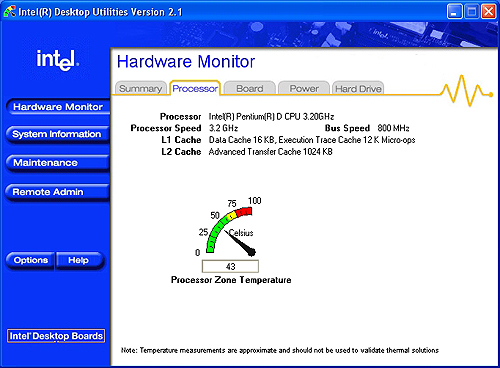
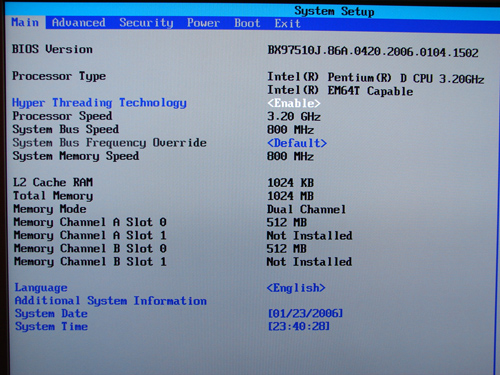
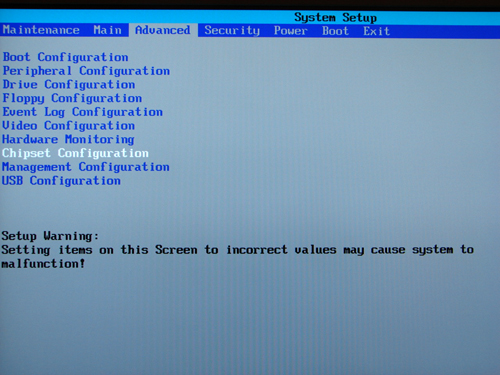
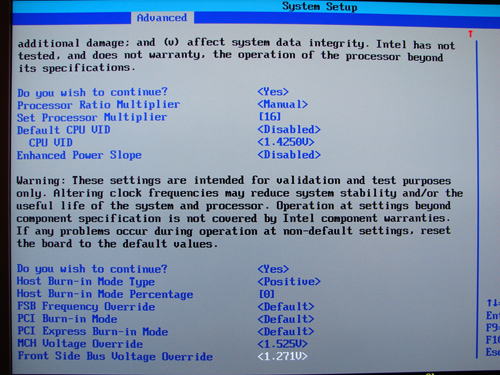
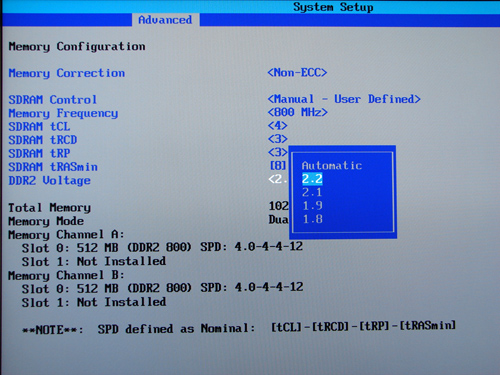
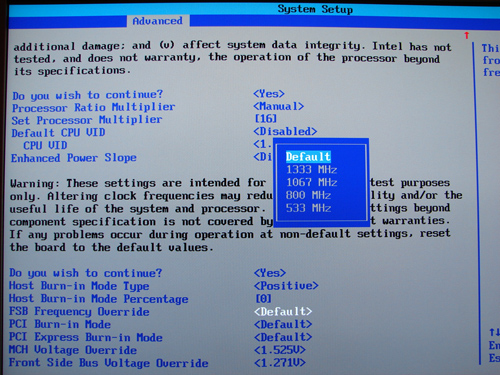










34 Comments
View All Comments
LoneWolf15 - Thursday, January 26, 2006 - link
"Bad Axe" is also a city in the state of Michigan.http://en.wikipedia.org/wiki/Bad_Axe,_Michigan">http://en.wikipedia.org/wiki/Bad_Axe,_Michigan
fishbits - Thursday, January 26, 2006 - link
That they chose to call this (or anything else) "Bad Axe" will be both the funniest and saddest thing I read all day.JarredWalton - Thursday, January 26, 2006 - link
I think it's a play off of "Bad Ass" - say it fast and "axe" sounds a lot like "ass" to me. Basically, it was a codename from Intel designed to sound cool. Love it or hate it, that's what they used. Intel has geeks working there too, it seems! :)BATCH71 - Thursday, January 26, 2006 - link
I really wanted this board to be a SLI-screamer. I guess that is not the case. Next processor will be an AMD.